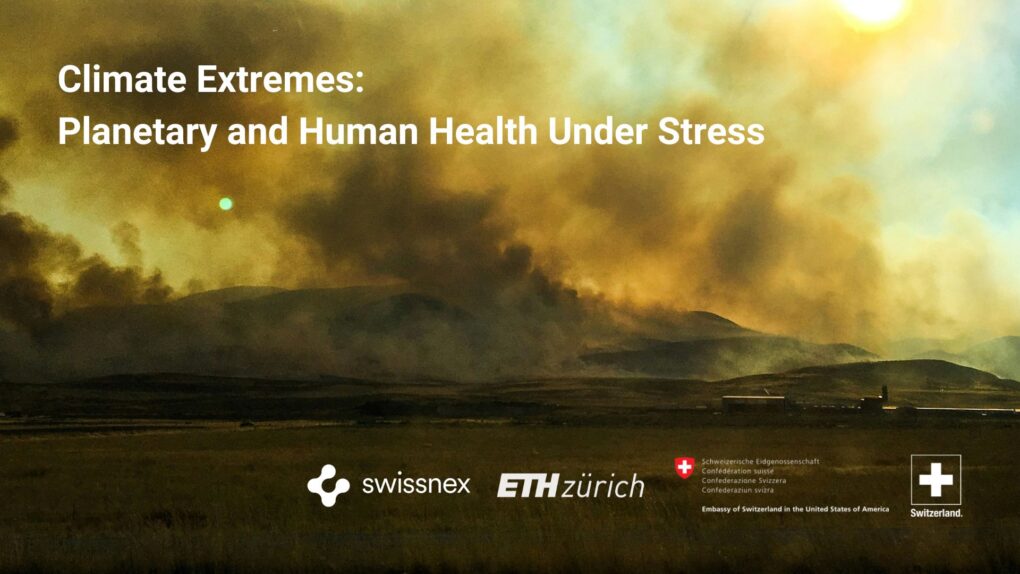
February 19, 2025 | Boston
This February, Swissnex hosted three leading scientists from Switzerland and the US for two events on climate change and health.
Held at Swissnex in Boston on February 13, Climate Extremes: Planetary and Human Health Under Stress featured contributions from Sonia Seneviratne (ETH Zurich), Mary B. Rice (Harvard T.H. Chan School of Public Health), and Maria Ivanova (School of Public Policy and Urban Affairs at Northeastern University) in a conversation moderated by TIME correspondent Justin Worland. The panelists examined the complex relationships between fossil fuels, planetary systems, and the human body. They addressed the role plastics play in perpetuating fossil fuel use, the feedback loops created by carbon emissions from wildfires, the health risks of particulate matter and plastic chemicals in wildfire smoke, and the parallels between misinformation campaigns that have minimized the dangers of smoking and climate change.
The following day, the same panelists participated in the session Climate Extremes: Global, Health, and Community Impacts at this year’s annual meeting of the American Association for the Advancement of Science (AAAS), the world’s largest scientific society, where they addressed the same overarching issues.
The two events were organized by ETH Zurich, The Science and Technology office of the Embassy of Switzerland in the United States, and Swissnex, with the support of Presence Switzerland.
Here are some key takeaways from the conversations:
- Feedback Loops: Prof. Seneviratne noted that the physics of a hotter planet creates feedback loops, with more intensive evaporation and condensation cycles exacerbating droughts, wildfires and floods. The loss of trees from these climate extremes destroys carbon sinks and emits CO2 directly back into the atmosphere. The Canadian wildfires of 2023 released three times Canada’s annual carbon emissions. These emissions can then accelerate climate change, a fact not fully accounted for in our climate models.
- Attribution Science: This emerging field establishes how probable these extreme events are in a world with or without climate change. Recent studies on the contributions of climate change to the Los Angeles wildfires have been published by World Weather Attribution, a central resource for tracking and attributing extreme climate events co-founded by researchers at ETH Zurich. Prof. Seneviratne is contributing to this field with research on the attribution of heatwaves.
- Smoke Health Effects: Wildfires account for about one third of all the particulate matter (PM) in the air in the US, with major health effects. As explained by Dr. Rice, the smallest combustion particles (PM 2.5) are absorbed through the lungs, where they wreak havoc not just on the respiratory system, but throughout the body. These particulates increase risk of diabetes, high blood pressure, stroke, premature birth, and birth defects, among other maladies.
- Microplastics in the Body: Microplastics pollution, another damaging consequence of fossil fuel usage, is now pervasive, as plastics are embedded in nearly every human body and that of several animal species. According to Dr. Ivanova, the science of tying microplastics to specific diseases is still young, but one recent study suggested an increased risk of dementia. The good news is that 91 countries have bans or restrictions on single-use plastics, and international treaties are in the works to limit single-use plastics.
-
![]()
Event video
Photos
-
Flickr
![]()
-
Photos
![]()
-
![]()
-
![]()




